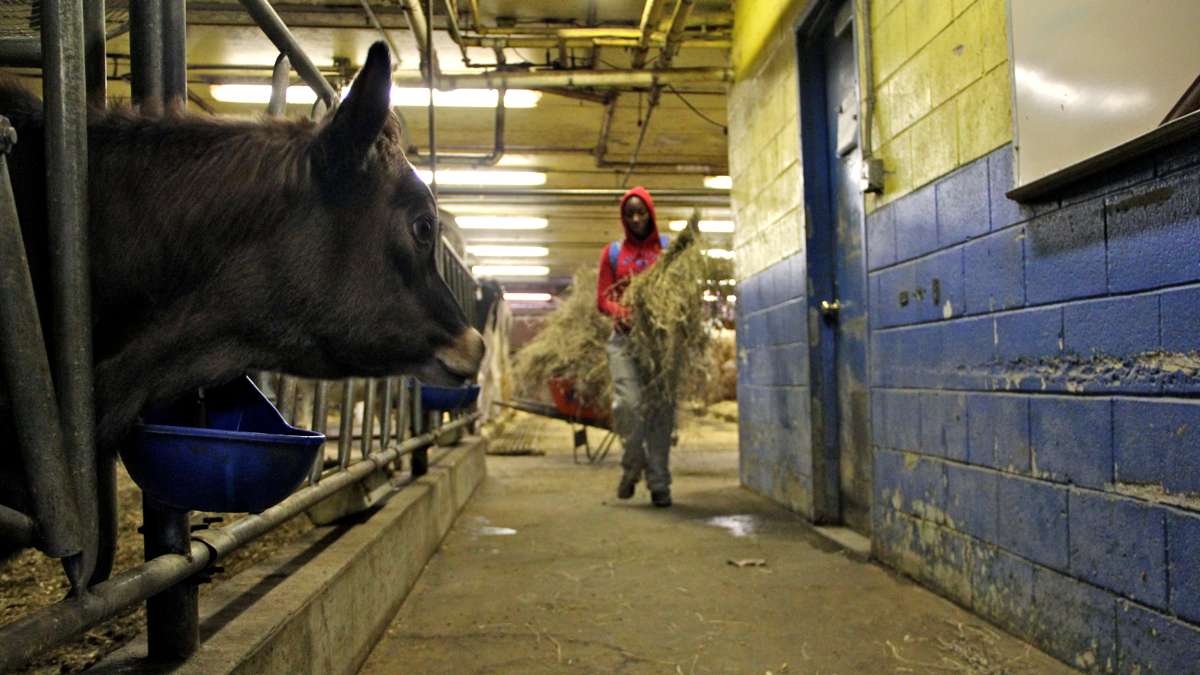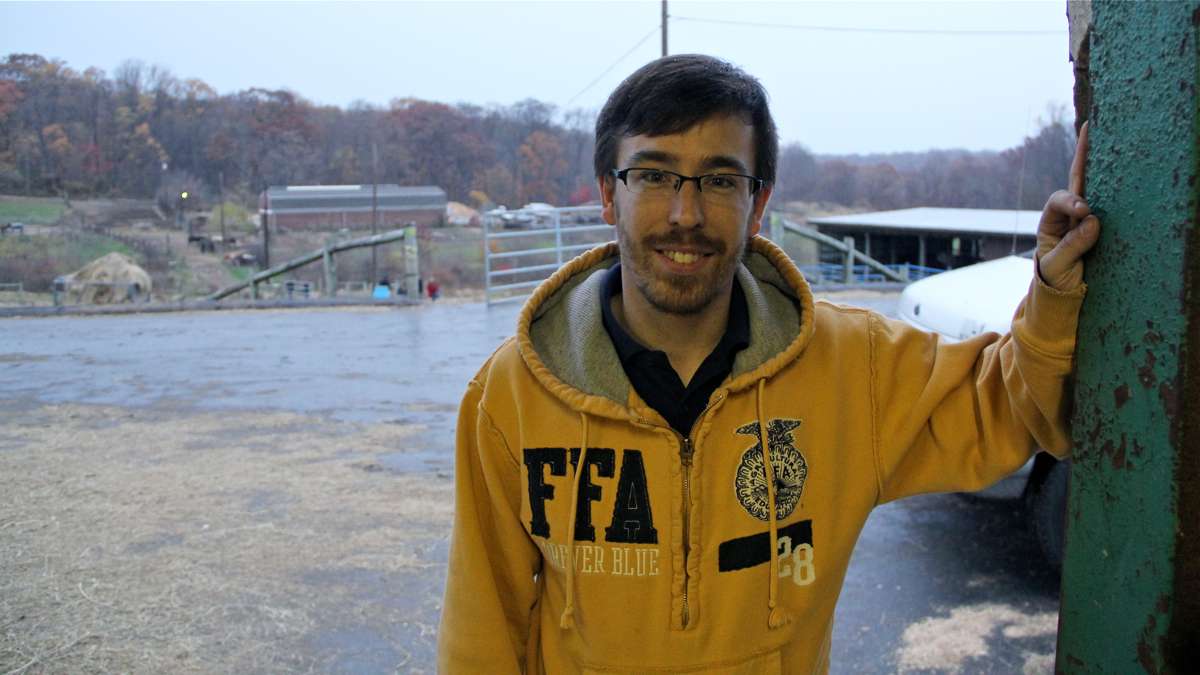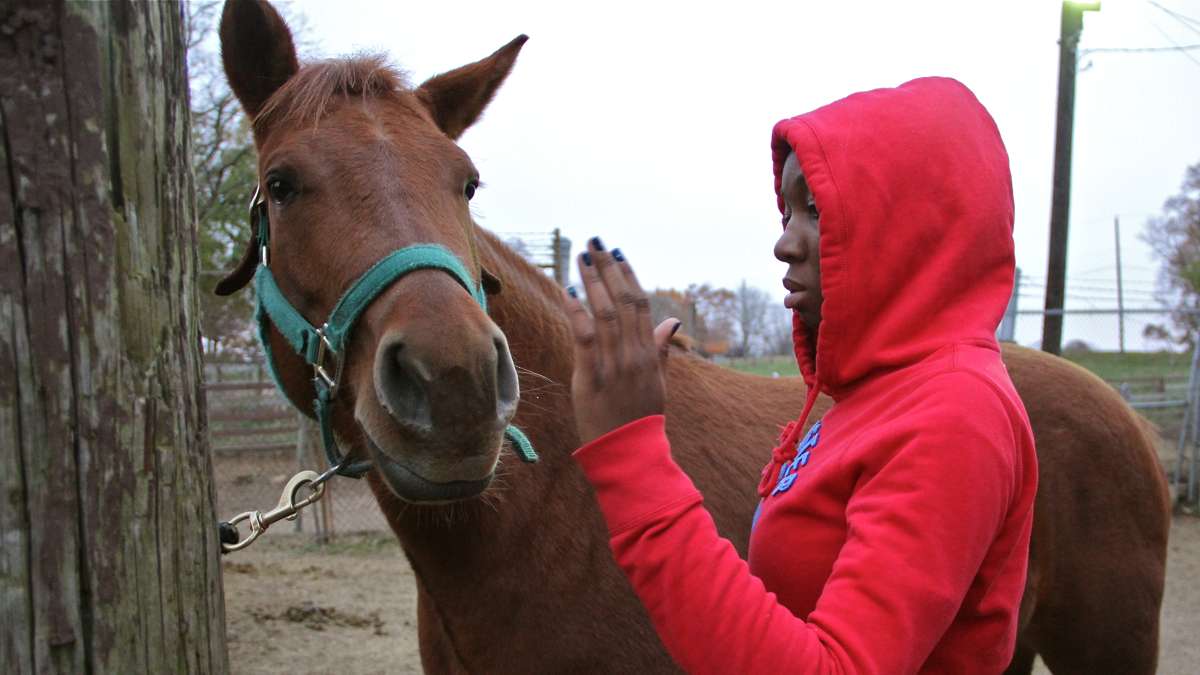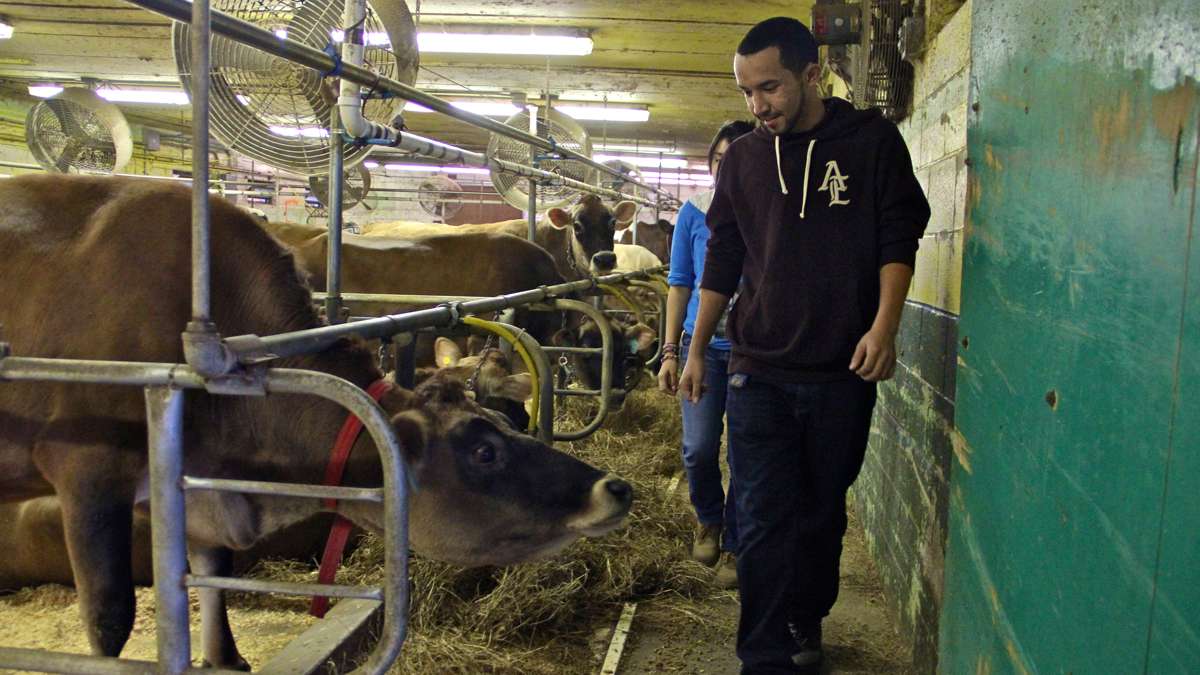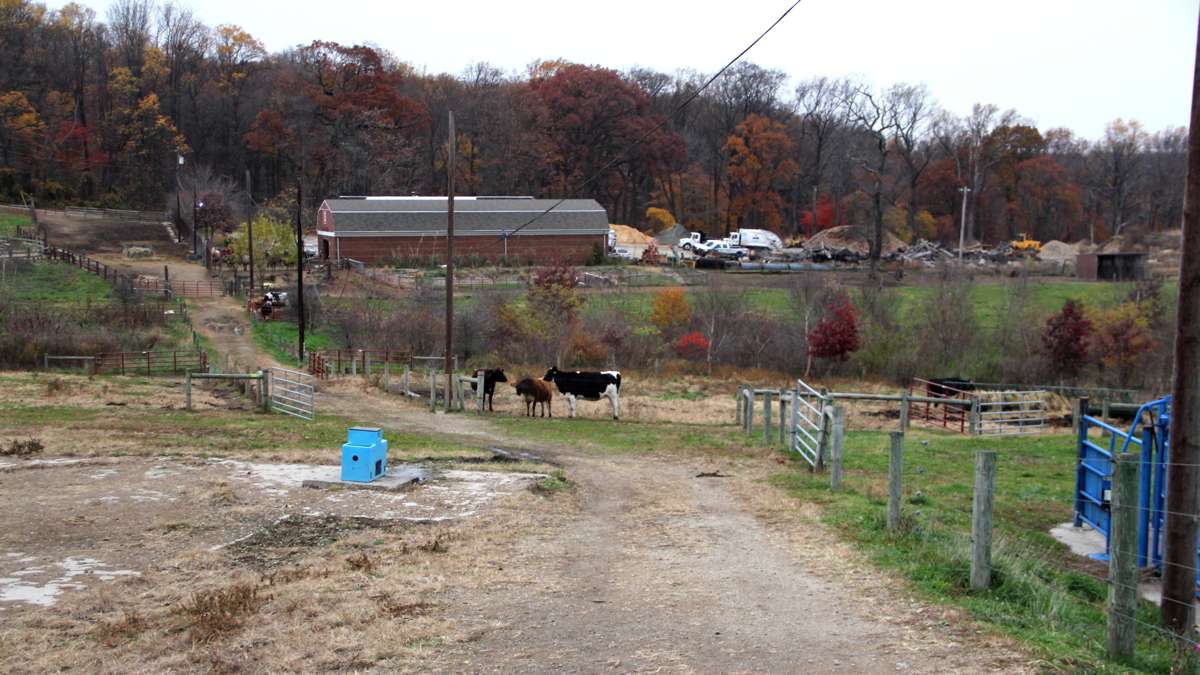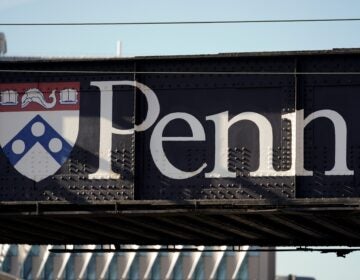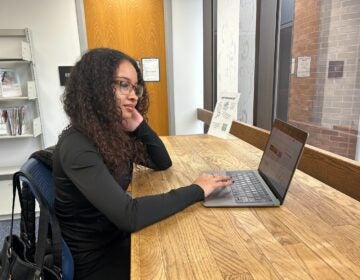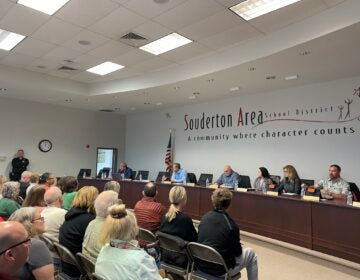Despite budget cuts, students reap essential lessons at Philly’s Saul farm school [photos]
ListenIsaiah Orellana’s school day starts early, hours-before-dawn early.
“I get up at 5 o’clock. I shower. I clean up after my dogs, whatever mess they made, and then commute to school,” he said.
It’s a commute that would daunt many adults.
Leaving his Juniata Park home, Orellana catches the El to the Frankford terminal, and then begins a 60-minute ride aboard a bus specifically designed to shuttle North Philly kids to one of the Philadelphia School District’s most unique options: Saul High School for Agricultural Sciences in Roxborough.
“I heard it was an agricultural school, and I was really interested. I said, ‘You know what, I like animals. Let me see what this is about,'” said Orellana. “And when they took me on the tour, I was just like, ‘Wow, I really like this. They have a farm. They have animals. They have a meat lab. And then just a regular school on top of that. This is great.'”
Orellana, a junior who aims to become a veterinarian technician, said the school – with its lush farmland and grazing livestock overlooking the Wissahickon woods – takes him a world away from the urban landscapes he’s known.
“I come from a poor family basically. We moved to Philly, and we don’t have any family in the area,” he said. “Everyone kinda lives in New York or New Jersey and we just struggle financially.”
A cow to feed
Weaving through the cattle in Saul’s dairy barn, the aroma of sweet nutrients – read: dung – thick in the air, junior Mitchell Valentin asked where else would you find this first period assignment: feed the cows.
“Like 8:26, we get into class, and we put our boots on, and we head out,” he said. “I talk to my friends. I’m like, ‘How’s your high school.’ They just sit down. They just learn. Here we have a thing where we cross the street and we feed cows. Not everyone has a cow to feed.”
Not everyone has pig to fatten, a sheep to shear or a horse to groom either.
With the rush of Henry Avenue traffic whirring in the distance, West Oak Lane’s Bre’ana Cooper skillfully brushed a chestnut-brown mare, chatting casually with the animal as if in a salon.
Interacting with horses is a lot like doing so with teenagers, Cooper said, just a lot less temperamental.
“I’ll just be like, ‘I’m having a bad day.’ We’re probably both having bad days, that’s why you’re acting like that. We’re both having a hard time, but we’re going to get through it together.”
Saul, of course, isn’t just all mooing, grooming and learning how to be a farmhand.
In addition to the standard slate of English, history and math, agriculture teacher David Ruvarac says students gain a real-world understanding of the scientific method.
“We look at the chemical structures. We look at formulas. So we really have much more of a science focus,” he said. “We look at research. We look at components — why things are happening, not just what’s going on.”
Connectivity, sustainability
The other part of it is understanding the interconnectivity of big systems. For instance, how cow waste turns to compost, which fertilizes the fields, which then sprout more grass for the cows to eat.
It also nourishes the vegetables that the school uses in its lunches and sells through its community supported agriculture stand. Those sales, along with marketing milk to Land O’ Lakes, produce profits that help fund the entire operation.
Those are lessons that can be applied to the Philadelphia School District as a whole and Saul’s place within it.
The district’s fiscal crisis has stripped Saul’s resources to the core and the real effects of budget cuts ripple through the building in ways that mirror schools across the city.
Staff has been cut. Classes are overcrowded. The school relies on philanthropy to prop up its fundamental offerings, and teachers fork over more from their pockets to keep things afloat.
Ruvarac said he spent close to $3,000 last year.
“Whether it was lab equipment, scales, materials to facilitate a lab, books and supplies for my students who couldn’t afford notebooks and paper, markers, crayons – all sorts of different things,” he said.
Saul principal Tamera Conaway said that even as enrollment has grown over the past few years, the school has lost many staffers: six teachers, an assistant principal, a secretary, and a part-time counselor. The school’s more than 500 students currently share one counselor and one nurse, which is actually a better ratio than many district schools.
The school has only been able to retain much of the programming that makes Saul special because teachers have gone out of their way to solicit grants, Conaway said. An increased presence from the alumni and home and school associations has helped as well.
Still, she said, “we’re trying to do more with less.”
Conaway – who had been principal at Lingelbach Elementary prior to Saul – was one of seven district principals selected by the Lindback Foundation last year for a leadership award that has provided the school with an additional $20,000.
As a specialty-admission magnet school, Saul has been criticized by some for its performance on state standardized tests.
Between this year and last, proficiency rates on the Algebra 1 Keystone exam dropped from about 59 percent to 56.5 percent. In literature, they dropped from about 88 percent proficient to 83. In biology – a test that’s proved to be a challenge for students across the state – proficiency rates climbed from 26.5 percent to 44 percent.
Conaway expects scores across the board will rise, citing curriculum changes she’s implemented to increase the rigor of the school’s course offerings. Before she took the helm at Saul four years ago, the school didn’t offer pre-calculus, physics, environmental science or a slate of new advanced placement exams.
A singular experience
Despite less than stellar test scores, Conaway says Saul’s agricultural program provides students with a school experience unlike any other in the region.
“We get students who come from New Jersey and some of the suburban areas who have been willing to pay tuition to come to Saul,” she said.
The school was recently adopted by the Philadelphia-based chemical company FMC, a move which will make it possible for more students to attend the statewide farm competitions in Harrisburg and Penn State – a big deal for Saul students who spend months after school preparing to show pigs, horses and sheep.
“A lot of our students don’t really ever get out of Philadelphia,” said Ruvarac, “and so this allows them to see Penn State, or see what a large university has to offer.”
Germantown’s Timisha Smith Rafi, one of the students hoping to make that trek, knelt on a hillside amid curls of wool from a lamb she named Hope – heartened by the fact that, budget crisis or not, such a public school persists.
“It actually brings me joy, because I like being around animals,” she said. “I’m like an animal person. And just being with them makes me happy.”
WHYY is your source for fact-based, in-depth journalism and information. As a nonprofit organization, we rely on financial support from readers like you. Please give today.





